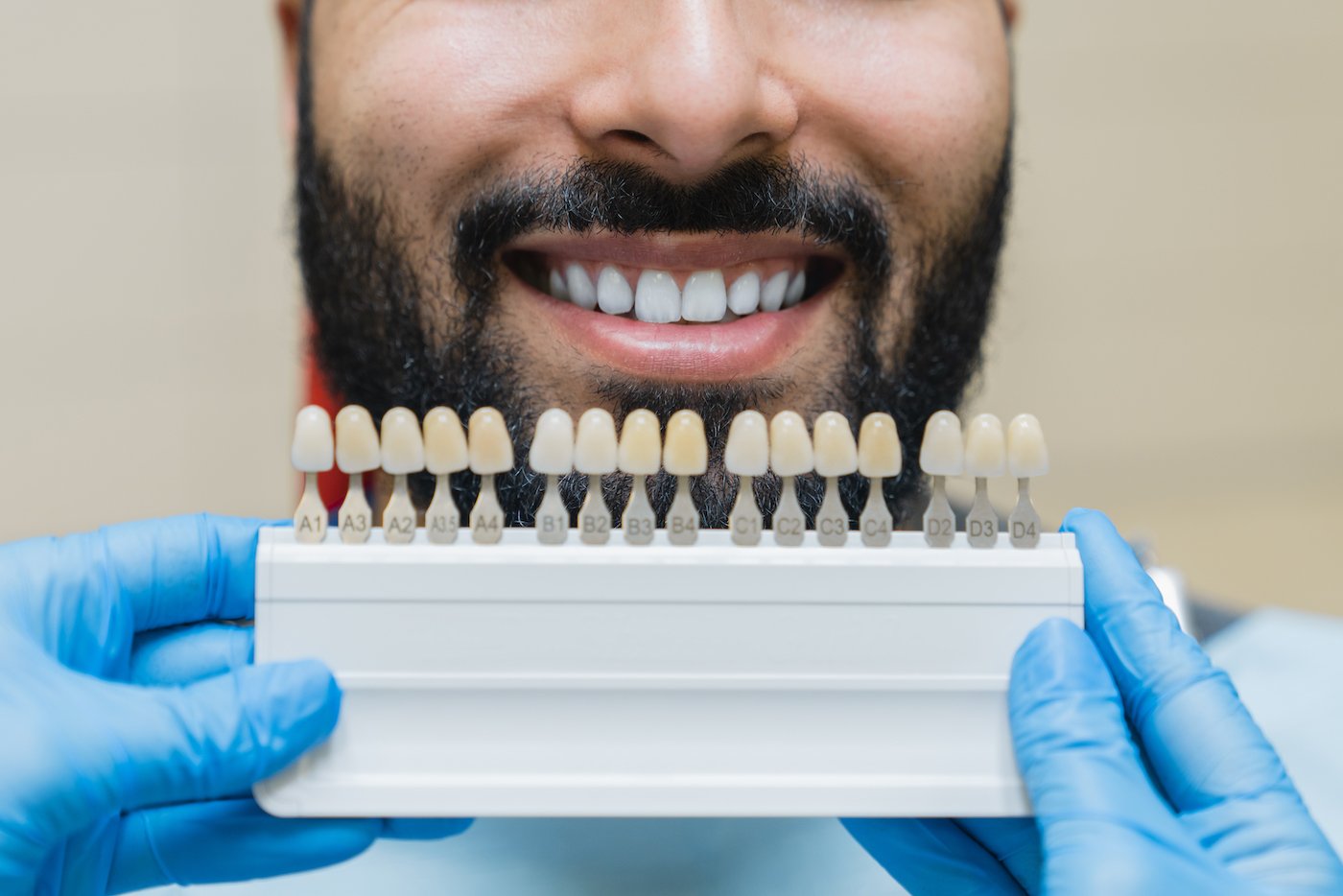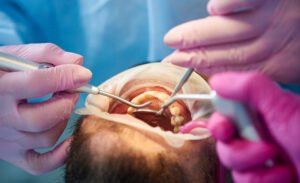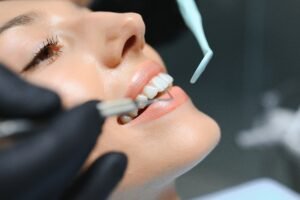Fixing cosmetic dental flaws with porcelain veneers is the fastest and most reliable technique to improve your look. Choose veneers for a perfect smile and healthy living. You could use orthodontic braces to correct crowding, gaps, and other Veneers misalignment concerns, but you’d be trapped wearing them for up to two years, suffering from the trouble and shame every day. Veneers are a much speedier solution that will give you the ideal, bright smile you’ve always wanted in no time while also increasing your confidence.
Of course, if you want your veneers to last, you must take proper care of them. You must take precautions to guarantee that your porcelain veneers continue to improve your smile for years to come, just as you must clean and preserve your natural teeth to keep them bright and attractive. Otherwise, plaque and tartar accumulation, staining, and other unattractive degradation may occur.
read more: How often should you prefer professional dental cleaning, and why?
Your veneers may last up to ten years with appropriate care and still look as nice as the day you received them. Here are a few pointers to help you clean and maintain your veneers, so they last as long as possible.
Take Care of your Porcelain Veneers
Maintain proper hygiene.
You’re on the right road to keep your dentures clean and properly maintained if you brush, floss, and rinse with mouthwash after every meal or at least twice daily. However, you may need guidance from your dentist to ensure that you take adequate care of your porcelain veneers.
Learning to brush and floss with veneers is the most difficult task for many individuals. If you are habitually overly harsh when brushing your teeth, you may harm your veneers by generating chips or cracks. After you receive dental veneers in Calgary, your dentist may show you how to brush and floss effectively around your new dental treatment.
Check Now: Understanding the components and working mechanism of braces
Avoid intake of harmful foods.
Your veneers, as well as your natural teeth, may be harmed by a variety of foods. Chewing on ice or hard sweets, for example, can be equally detrimental to both, resulting in unattractive chips and splits.
On the plus side, foods that stain natural teeth, such as coffee, tea, wine, blueberries, and food colours, should not negatively affect your veneers. The main drawback is that they might discolour natural teeth next to veneers, resulting in a visible colour difference over time, which you don’t want.
Check Now: Different Types of Invisalign You Should Know About Before Getting One
Avoid biting hard objects.
Everyone knows that teeth may be used for more than simply eating; they can also be used to open bottles, for example. Unfortunately, not only is this bad for your teeth, but it’s also bad for your veneers. Porcelain may be chipped by hard items such as metal caps and glass bottles. If you have a propensity for biting on strange objects like pencils, pens, or even ice, it would be beneficial if you could stop doing so.
Limit your alcohol consumption.
The bonding materials that adhere the veneers to your teeth can deteriorate if you consume a lot of alcoholic beverages. While this does not imply the veneers will disappear, the bonding line will be more susceptible to damage, degradation, and discoloration. However, alcohol isn’t just contained in alcoholic beverages. Check the ingredient list when buying mouthwash or toothpaste to determine whether it contains alcohol, as these can be just as harmful as booze.
Must See: How to take care of your dental bridges without worrying
Limit intake of sweets.
Do you ever have a fuzzy or gritty feeling in your teeth? If this is the case, you may be leaving dental plaque on your teeth. Plaque adores sugar and converts it to cavity-causing acid. After consuming sugary meals, you may see the plaque on your teeth.
Check the labels at the shop since many items we consider ‘healthy’ are bad for our teeth. Some yogurt varieties, for example, may contain a lot of sugar. Sports beverages, however, frequently contain more sugar than the average person realises. It would be simpler for you to avoid oral health problems if you limit sugary meals and drinks.
Read more: What are the things to consider before getting veneers?
Change your toothpaste.
You might want to consider altering your toothpaste after veneers are done and adjusting your oral hygiene habits. This is because abrasive substances, such as gritty toothpaste tubes designed to clean away surface stains on teeth can harm porcelain.
When your dentist decides on veneers, they will meticulously match them to the surrounding teeth to ensure that they fit in with the rest of your smile (which is why many patients undergo whitening before getting veneers). Whitening toothpaste can help keep your natural teeth from staining and discolouring over time, making your veneers seem different. It may also aid in the prevention of veneer surface discoloration.
Must Read: What Are the Situations That Demand Restorative Dentistry?
Unfollow bad habits.
You already know that smoking is bad for your health, but it may also be detrimental to your dental health. Cigarettes and other tobacco products, in addition to the numerous health risks they represent, can also harm natural teeth and veneers owing to yellow discoloration. Tobacco cessation is a fantastic idea if you want to protect the aesthetic of pearly veneers while also avoiding any health risks.
Read More: How to keep your teeth naturally white?
Visit the dentist regularly.
You have a lot of control over the longevity of your veneers, as well as your natural teeth and overall oral health. You may take steps to keep your smile looking great for years if you practise good dental hygiene and are aware of how different chemicals might destroy veneers.
Do not grind your teeth.
Grinding your teeth can harm your natural teeth and veneers and should be avoided at all costs. I understand this is easier said than done, especially if you grind your teeth at night. If you have a problem with teeth grinding or clenching, Barganier and LeCroy, DMD, will help you find a solution to safeguard your teeth while you sleep.
Check Now: What are the key factors to consider when choosing dental crowns?
Conclusion.
Maintaining good oral hygiene after the veneer’s surgery is the greatest way to keep your teeth and gums healthy. Brushing your teeth twice a day and practising other excellent dental practices will help you avoid cavities and gum disease by removing plaque. When the remainder of the mouth is healthy, porcelain veneers are more likely to last.















